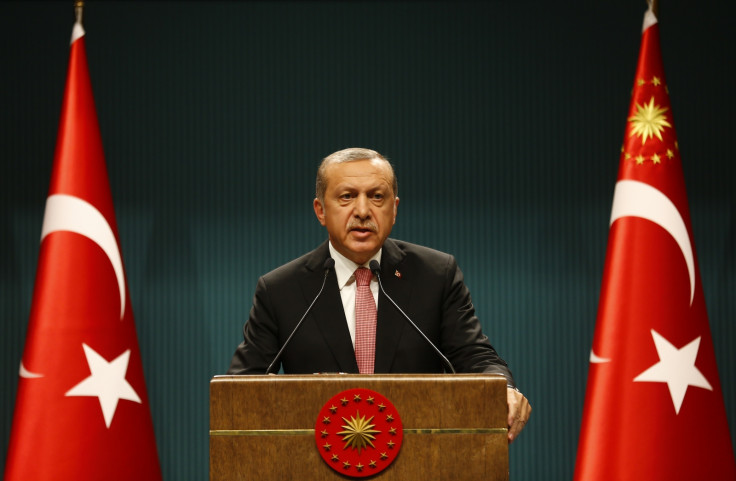When will we realise Erdogan's Turkey has descended into an oppressive dictatorship?
Government defends state of emergency by comparing it to Hollande's actions after attacks in France.
The aftershocks of the failed coup continue to shake the state apparatus in Turkey. Over the last week, many have been purged from their jobs and detained by authorities, a state of emergency has been declared across the country and the European Convention on Human Rights has been temporarily suspended.
No one knows the extent of what is to come, but alarm bells must now be ringing: just how much more illiberal can a country get before it is regarded as an oppressive dysfunctional dictatorship?
Late on Wednesday (20 July), the President Recep Tayyip Erdogan announced a three-month state of emergency. In doing so, the government expanded its powers to rule by decree, unchecked by the constitution, with the ability to carry out warrantless searches, confiscate assets and ban public assembly.
In a bid to reassure the public Erdogan said: "This measure is in no way against democracy, the law and freedoms." Rather he suggested it aims to protect and strengthen them.
The pro-Kurdish People's Democratic Party (HDP) slammed the declaration as a means to eliminate all opposition and a process whereby fundamental rights and freedoms would be abolished for a de facto presidential system.
Erdogan and his administration are expected to continue with the relentless purge. Already nearly 60,000 people across the security forces, the judiciary and education have been dismissed, suspended or detained after the failed putsch.
The government claims the plotters are supporters of Fethullah Gulen, a cleric living in self-imposed exile in America. The fear is that it will use the coup as an opportunity not only to purge the cleric's supporters but also secular leftist opposition. Already there are reports of minorities such as Kurds and Alevis being dismissed from high-ranking positions, particularly in the judiciary.
The fear is that Erdogan will pack those posts with his supporters, a move that would transform the institutional make-up of the Turkish state for many years to come. There is a serious concern about how qualified, competent and experienced the newcomers would be and what consequences this would have for the functioning of bureaucracy in Turkey.

The European Union and Human Rights Watch (HRW) have been keeping a critical eye on Turkey. The EU foreign affairs chief, Federica Mogherini, called on the authorities to respect the rule of law, human rights and fundamental freedoms.
However, the government defended the state of emergency by comparing it to President François Hollande's decision to do the same after a spate of terrorist attacks in France. Emma Sinclair-Webb, at HRW, dismissed the comparison, saying the French emergency rule did not involve the most controversial element of Turkey's — rule by decree, unchallenged by the Constitutional Court — and that there were no mass arrests or purges in France.
The feeling in the AKP is that there is substantial evidence showing the US was initially supportive. And this does not bode well for the future relationship between the two supposed allies.
The next step has been to temporarily suspend the European Convention on Human Rights (ECHR). Again, when Turkish authorities were criticised over the suspension, Deputy Prime Minister Numan Kurtulmus pointed his finger at France's suspension of the ECHR. The government said that emergency times need emergency measures and that is what they are deploying.
Probably, the post-coup changes in government policy will not be limited to the domestic sphere. Internationally, it is likely to adopt a strategy – and there are already signs of that emerging.
From low-profile MPs of the governing Justice and Development Party (AKP) to highly respected ministers, as well as government-controlled media outlets, there has been speculation about the role played by the US in this failed coup.
Erdogan and his supporters have always believed Fethullah Gulen is harboured, supported and therefore controlled by America. They believe that that the coup was masterminded by the cleric, and, by extension, assisted by the US.
While the coup was taking shape by 10:00pm Turkish time, it was not condemned by the US until 02:00am next day – a time gap many in Turkey view with suspicion.
The feeling in the AKP is that there is substantial evidence showing the US was initially supportive. And this does not bode well for the future relationship between the two supposed allies. In all likelihood, Erdogan will adopt a more eastward-looking foreign policy. Which is bad news for Nato, but also a step in the direction of a Putin-style autocracy in Turkey.
© Copyright IBTimes 2024. All rights reserved.






